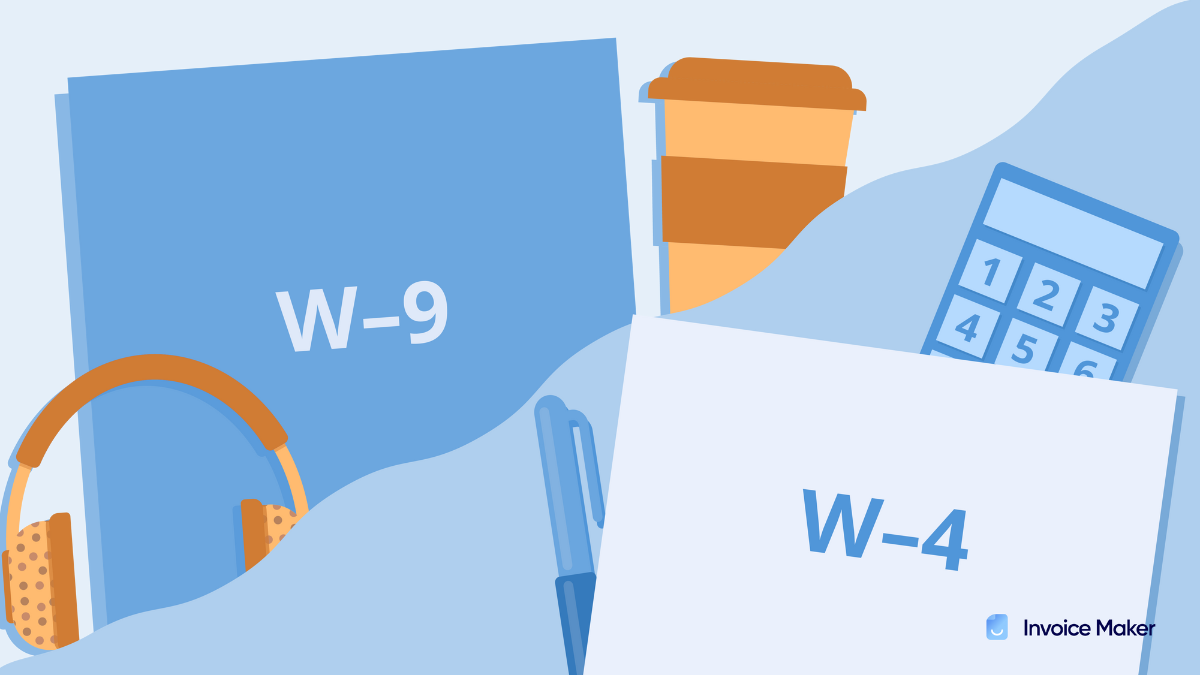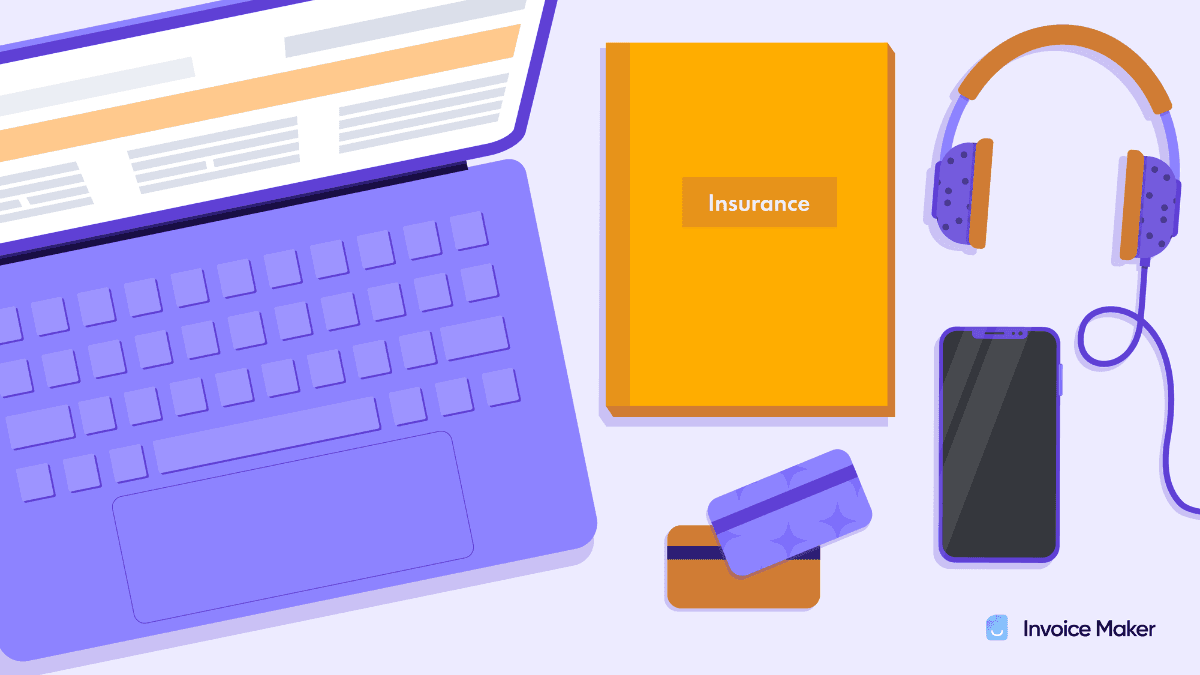How to Become a Freelance Media Buyer

Traditionally, Media Buyers worked almost exclusively as employees at advertising agencies or with large companies that maintained in-house advertising departments. But today, there are more opportunities than ever to have a successful and higher-paid career working as a freelance Media Buyer.
Make a Free Invoice NowWhy Become a Freelance Media Buyer?
Due to the recent meteoric increase in new media like social media, streaming, and other digital media platforms, freelance Media Buyers have access to the tools necessary to successfully and effectively purchase media for advertising campaigns.
Media Buyers currently working as an employee for another company might be interested in making the transition to freelance work for a number of personal and professional reasons. As a freelancer, one has an opportunity to:
- Have a flexible schedule: being your own boss, you can set your schedule and decide how much work you want to do.
- Make more money: by offering media buying services as a freelancer, you are building out the overhead that an advertising agency would normally pass to the client. This allows you to potentially make a better annual salary than a full-time, salaried media buyer.
- Work remotely: because much of the work is done on a computer, the job can be done from just about anywhere. And with internet conferencing technology like Zoom, people no longer have to be in the same room to meet face-to-face.
Working as a freelance Media Buyer is not a separate career, however. In order to become a freelancer in this space, an individual almost certainly must have been a Media Buyer at an agency or in-house advertising department. The skillset required to effectively perform the job is acquired over time and comes with rising through the ranks.
![]() What Does a Freelance Media Buyer Do?
What Does a Freelance Media Buyer Do?
Whether in a salaried or freelance role, a Media Buyer wears an important hat within the broader context of an advertising campaign. Their primary purpose is to set into action the plan of an advertising campaign so that it successfully meets or exceeds its intended goals. This is accomplished by determining where to place each advertisement so that the target audience becomes engaged with the ad.
The Media Buyer must be intimately familiar with the different types of advertising that is now available across a number of platforms, including:
- Digital
- Social Media Platforms
- Broadcast (radio and television)
- Streaming Services
- Poster and Billboard
Working within a budget defined by a Media Planner, the Media Buyer purchases the appropriate ad space so that the advertisements that have been produced by a creative team (commercials, billboards, banner ads, etc) will be seen by the target audience as frequently as possible.
Roles and Responsibilities
Freelance Media Buyers are primarily responsible for the successful implementation of a client’s advertising campaign. Once the campaign has been planned and the ads created, the media buyer takes over and works to get the advertisements in front of the target audience. In order to accomplish their objectives, a freelance Media Buyer is responsible for:
- Understanding the client, their industry, and what it is that they are selling.
- Identifying the target audience to which the client is selling.
- Critical thinking in order to identify and solve problems with the campaign.
- Negotiating. Advertising campaigns work within a budget. In order to maximize the effectiveness of the campaign for the client, to reduce the cost per action, a Media Buyer needs to have the ability to negotiate the lowest possible rates for each ad buy.
- Optimization. Media Buyers are responsible for determining which metrics or performance indicators will be used to measure how well a campaign does for the client. Using these indicators, the Media Buyer makes adjustments real-time in order to optimize performance.
- Providing feedback to the team. Perhaps a particular advertisement just isn’t doing well with the target audience. The Media Buyer needs to track performance in a way that can make this determination and can help the creative team make adjustments.
- Help test new ideas. Media Buyers play an active role in helping the creative team test new ad ideas by tracking and reporting on their performance.
In terms of roles and responsibilities, there isn’t much difference between a freelance and a salaried Media Buyer. However, the freelancer may be expected to wear a few more hats for their clients. Depending upon the size and sophistication of the clients that a freelancer is working with, they may need to:
- Have a greater involvement in the planning and creative phases of the ad campaign. Helping to provide data that will allow the planning and creative teams to successfully establish the direction and purpose of the campaign and to create ads that will achieve the goals of the campaign. Due to budgetary constraints, smaller companies may need to create their own ads rather than outsourcing this work. A freelance Media Planner will likely need to help guide this process.
- Set client expectations with regard to what “success” looks like. Clients may need some guidance in this area if they have not previously used advertising as part of an overall sales and marketing strategy.
Advertising Campaigns: The Process
Most advertising campaigns fall into one of two categories:
- Branding, where the purpose is to build brand awareness. This is typically what large brands like Tide or Coke do. They want to constantly remind people that their brand exists.
- Direct response, where the purpose is to entice a customer to act now and purchase.
In both categories, there is a cost associated with each view or each purchase or each engagement. This is referred to as a “cost per action”. By purchasing the ideal ad placement, the media buyer is able to maximize the effectiveness of the advertisement and therefore the effectiveness of the ad campaign – to reduce the cost per action.
But it doesn’t end there! Once ad space has been purchased and a campaign has gone live, the Media Buyer is responsible for tracking the performance of each ad and for making necessary adjustments in real time to optimize their performance. The Media Buyer’s goal is to get as much bang as possible for the client’s buck.
These days, media buying is done in one of two ways:
- Direct buy, where the Media Buyer contacts publishers directly in order to purchase advertisements
- Programmatic buy, where the Media Buyer uses automation technology to purchase advertisements.
Transitioning From Salary To Freelance
Whatever reason an individual chooses to become a freelance media buyer, there are important questions and considerations to run through as you start your freelance journey. It will be helpful to develop a business plan so that you know how to promote yourself. The good news here is that as a media buyer, you can put your experience to work for yourself.
Questions to Ask Yourself
What types of businesses do you want to work with?
Is there a particular industry that you feel particularly connected with or have a specialized degree of understanding about? Do you want to work primarily for women or minority-owned businesses? Do you feel that you can best serve small businesses? Determining your area of expertise will help you identify your potential customer.
How are you going to attract new clients?
How will you market yourself or advertise your freelance services? Do you plan to work by word-of-mouth? Or will you create a campaign and advertise?
Will you fill a niche, and how will you differentiate yourself?
Will you be less expensive than your competitors? Or will you provide so much value to your clients that you are able to charge a higher rate?
Once you have answered questions like these and have a solid understanding of who you are and what you will provide as a freelancer, you can begin to implement your startup and growth strategy.
How to Get Clients
Here are some suggestions that might help you build a client list:
Network
Consider developing relationships with creative agencies. Creative agencies are already working with clients at the media planning level and in creating the advertisements that will eventually need to be placed. There may be opportunities to become the buyer for those clients if the creative agency recommends your services.
Collaborate
Connecting with creative freelancers that provide services like graphic design, allows you to offer these services to your clients. This is an opportunity for you to strengthen your relationship with your existing clients. Tip: fully vet these creatives and only recommend individuals that perform top-notch work. Their performance will be a reflection on you.
Qualifications of Media Buyers
In order to be a successful freelance Media Buyer, one must possess a host of skills and abilities. Some are learned and some may be innate. A successful freelance Media Buyer will possess the following:
Personal Skills
- Great communication
- Critical thinker with strong problem solving abilities
- Detail oriented, enjoys analyzing data
- Enjoys Negotiating
- Able to quickly gain in-depth knowledge of clients’ industry and product(s)
Education
- Bachelor’s degree in advertising or closely related field
- Masters may be helpful but is not always necessary
Training/Experience
The training and experience needed to become a freelancer is mostly earned by working with or for Media Buyers at an advertising agency. Unfortunately, while there is an vast amount of incredibly useful information available online today, web-based training courses are unlikely to get you the gig. Most frequently, the career path relies on first taking an entry-level job with an agency or in-house advertising team. Entry level positions might include:
- Intern media buyer
- Administrative Assistant
- Assistant Media Buyer
As one’s on-the-job experience accumulates, it is possible to then become a freelance Media Buyer.
Tools Commonly Used by Media Buyers
An essential part of the job as a Media Buyer is to gather and analyze a wide range of data and metrics—user traffic, consumer behavior, competitor stats, and more. After all, without having data points to compare, it would be difficult to gauge how an ad campaign is going or what can be done to improve the bottom line—the conversion rate.
Here are a few useful online tools that freelance Media Buyers can access at little to no cost:
Google Analytics
Google Analytics is a powerful tool for tracking and analyzing user behavior and traffic, with around 200 different website metrics being measured in real time. Gathering and analyzing this data through Google Analytics helps to provide insight on customer behavior and improve ROI. Best of all, it’s available at no cost.
Ad Library
Meta, which owns Facebook and Instagram, offers a comprehensive search engine for ad campaigns currently active on its social media platforms. Searching by location and keywords, you can get an overview of how your competitors’ ads are faring. TikTok offers a similar ad library, where top-performing ad campaigns can be seen by location and industry. Both ad libraries are free to use.
Similarweb
Part of being a successful Media Buyer is understanding what your client’s competitors are doing—specifically, what’s working for them and what’s not. Similarweb is a popular platform that provides comprehensive online traffic data for all websites so that you can better understand how you are stacking up against your competitors. The platform offers a free Chrome extension and basic account at no cost.
Job Outlook: Future of Media Buying
As digital platforms and social media continue to play an increasingly important role in our lives, the role that these platforms play in advertising will also become more important. The more media we consume, the more opportunity exists for advertisers to reach us and the need for competent Media Buyers will continue to increase.
The U.S. Bureau of Labor Statistics reports that the occupational outlook for advertising, promotions and media managers is a growth of 10% between 2020 and 2030.
Advantages and Disadvantages of Becoming a Freelance Media Buyer
When considering any career path, it is important to weigh the pros and cons before making a decision.
Advantages
- The work can be dynamic and exciting
- The career leads to other higher paying careers in the advertising space
Disadvantages
- Requires a college degree
- It takes time to become a Media Buyer
- Salaried Media Buyers don’t make very much
Freelance vs. Salaried Media Buyer: What’s Better?
“Better” is, of course, subjective. Making the choice is as much personal as it is professional. The best way to determine which might be right for you is to look at the advantages and disadvantages of each and take a good look at what’s most important to you personally and in terms of your career.
It might also be helpful to reach out to someone that is currently doing freelance Media Buying. Take them to coffee and pick their brain. They will likely be a fantastic source of information and can help provide further guidance. Here are some of the broader considerations related to this question:
Salaried Media Buyers
Advantages
- Greater job security
- Health benefits
- Retirement benefits
- Good growth potential
Disadvantages
- Lower pay
- Reports to bosses
- Less flexible schedule
- May not be able to work remotely
- Typically works with 1-2 larger clients
Freelance Media Buyers
Advantages
- Potentially greater pay
- Self-employed
- Flexible schedule
- Can work remotely
Disadvantages
- Must attract clients
- Provides own retirement plan
- Provides own health plan
- Income may be less consistent
Freelance and Salary Rates
Freelance
- $25/hr on the low end and $125/hr on the high end
- $50/hr to $75/hr in the reasonable middle
Salary
- $60,820 national average reported by Indeed
While it may take some time to become a Media Buyer, once you are there it only requires a bit of entrepreneurial spirit to make the leap to freelancing.


